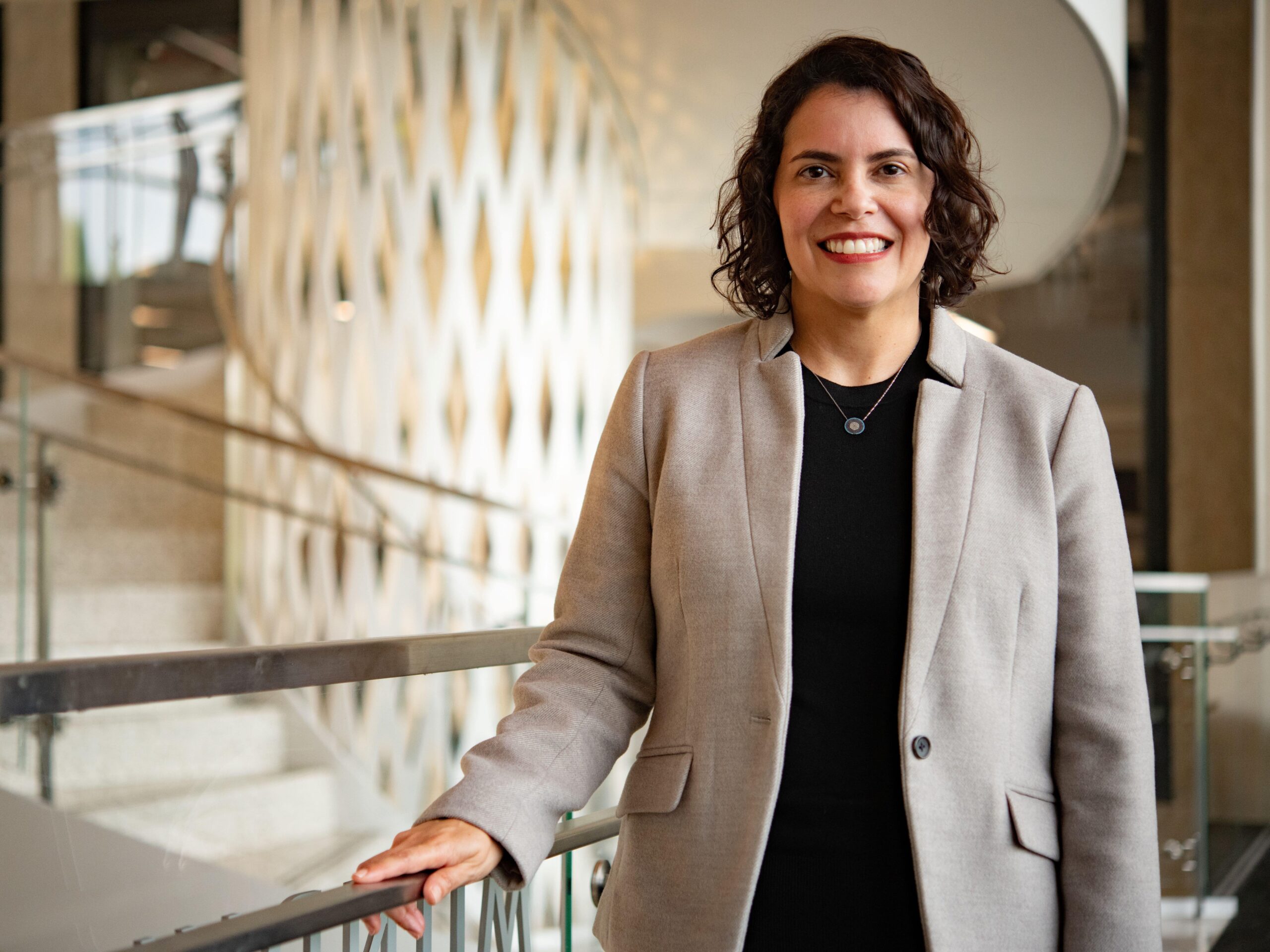
Fernanda Leite, profesor in the Cockrell School of Engineering’s Department of Civil, Architectural and Environmental Engineering
Fernanda Leite, professor in the Department of Civil, Architectural and Environmental Engineering, will become the Cockrell School of Engineering’s new associate dean for research later this year.
Leite, an expert in construction engineering and project management, will succeed John Ekerdt, who is retiring after serving in the position for 15 years. Leite will start on Sept. 1, and in the meantime, she is working closely with Ekerdt to ensure a smooth transition.
“I’m thrilled for the opportunity to lead the Cockrell School’s research enterprise and foster research excellence. As Texas Engineers, we aim to solve the biggest problems facing our world, and I’m excited to help advance that goal, driving transformative discoveries.”
Fernanda LeiteAssociate Dean for Research, Cockrell School of Engineering
Leite currently holds the John A. Focht Centennial Teaching Fellowship in Civil Engineering at UT Austin. She joined the Cockrell School in 2009 after earning her Ph.D. from Carnegie Mellon University. She is part of the leadership team of Planet Texas 2050, a university-wide grand challenge that aims to help the growing population of the state become more resilient to natural disasters.
Leite’s research focuses on a variety of topics related to the built environment, such as building information modeling, which is a digital representation of the physical and functional characteristics of a facility. Using technology to simulate buildings and infrastructure systems simplifies design and construction as well as the management of facilities throughout their life cycle.
Leite is working with fellow civil engineering professor Paola Passalacqua on a project to measure the combined impacts of water and air pollution in Southeast Texas, and she is leading a project focused on decarbonizing capital construction projects, among others.
The associate dean for research works with faculty, departments and research centers to enhance and facilitate research in the Cockrell School. The position is also responsible for intellectual property issues, safety and space planning.
